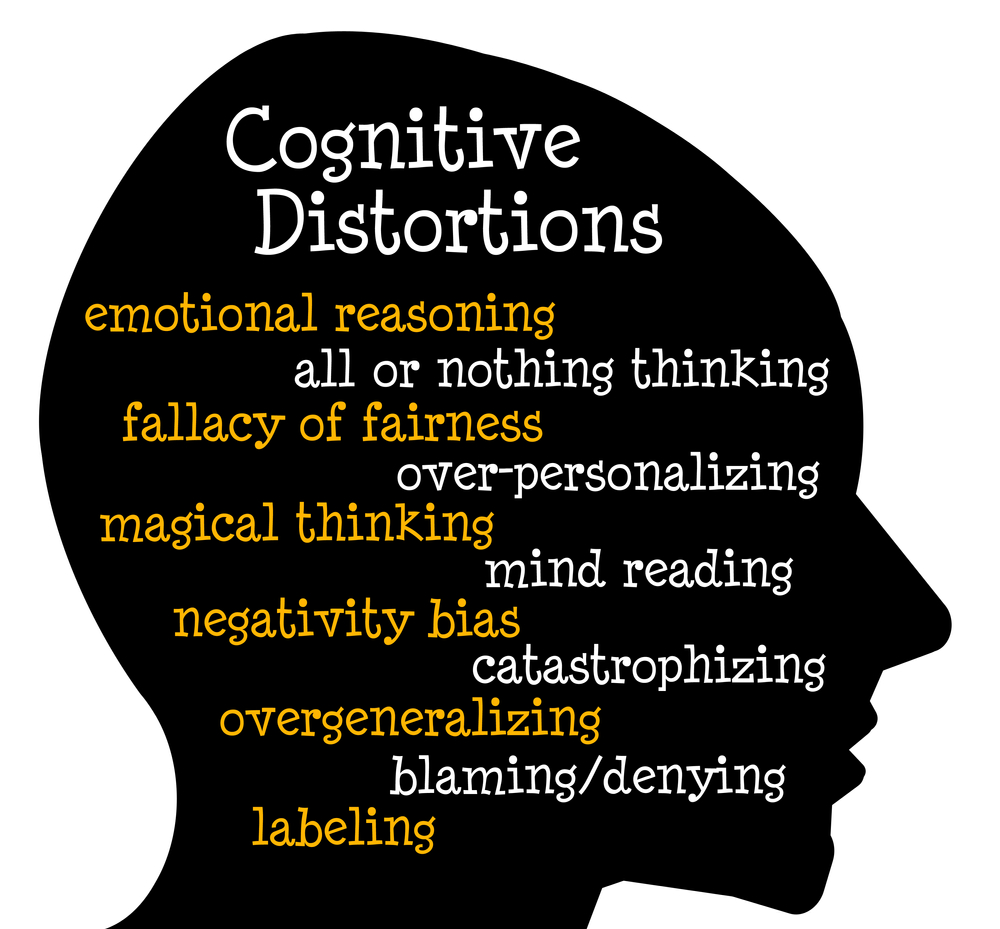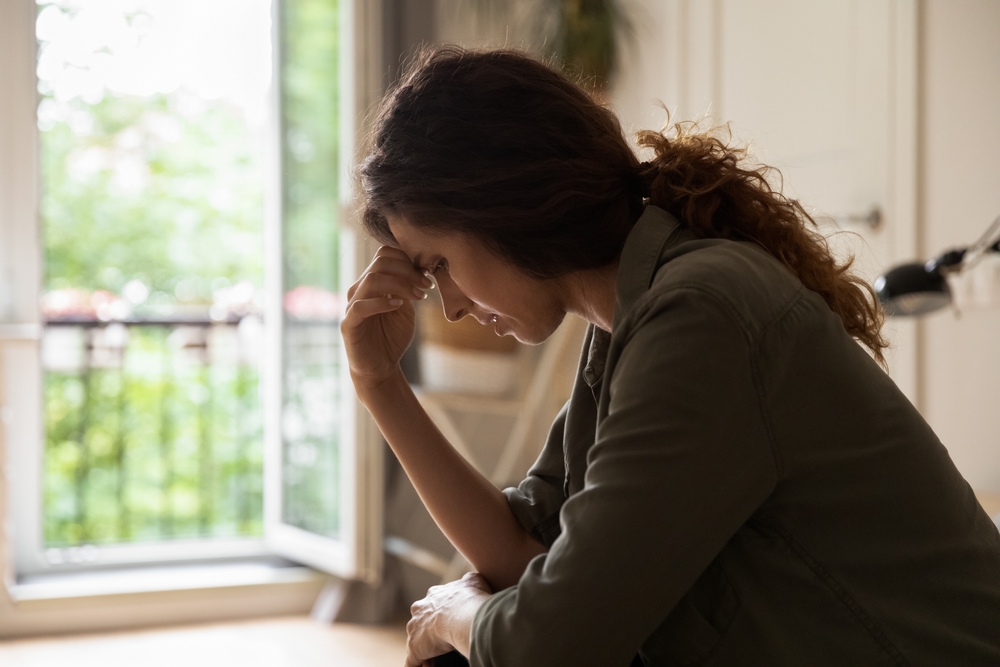Speaker 1 (00:00):
Welcome back to The Renewal session.
The Renewal session is built on three pillars.
1. Redefining your relationships.
2. Renewing your mind.
3. Refining your purpose.
I put those pillars in that order for a very particular reason. And that is that in my own life, I have found that most of my greatest change and clarity has come first through relationships. Sometimes that clarity has come as a result of healthy relationships and sometimes it’s come as a result of unhealthy relationships, but regardless of how the change and the awareness has come about, it has ultimately led me to evaluating myself, talk, looking at how past wounds are impacting future choices. It’s helping me to evaluate what is the type of energy that I want to keep in my life and what is the type of energy that I really want to minimize in my life.
Speaker 1 (01:11):
Those relationships have then led to a reset in my mindset and that renewing of my mind and really making room for what God would have me think about what scripture reminds me of in telling me who I am and how much I am loved. And then as that mindset begins to shift, then I begin to think through what is my calling in life? What is my purpose? Why am I here? What’s good. Can I serve? And that’s where that refining your purpose comes in. And I feel like a lot of times what I’ve done in the past, or even what I’ve seen other people do is they jump past relationships and mindset and they go straight for purpose. And I don’t know if that’s because we’re constantly being inundated. It, I don’t know if it’s because we’ve been constantly inundated with this idea of everybody’s got a purpose, everybody’s got a call on their lives, but I see it time and time again, where people are desperate to figure out their purpose.
Speaker 1 (02:29):
But really I think what they’re desperate to figure out is their identity. And then once they understand who they are then out of knowing who you are then becomes your purpose. But when you are struggling to figure out who you really are in life along comes the struggle with finding your purpose. So I want to start back with the very first pillar. And again, this is just my method of getting to a place where I am today. And I have found for me and I stress for me because I don’t want anything that I suggest on this show to be something that usurps God’s trajectory for your life. If God is revealing something to you at this season of your life, and it’s in a particular order, don’t mess with that. God’s, God’s bigger than any suggestion I would ever have. And you should a hundred percent follow his lead.
Speaker 1 (03:33):
These are just simply ways in which God has led me through the process of personal growth. So the very first pillar is redefining your relationships. And obviously not all relationships need to go through a redefining. Some of them just may need to go through a defining. And so we’ll start there with this idea of being able to discern what kinds of relationships I have in my life. Are they healthy? Are they unhealthy? Are they unhealthy or are they toxic? And I put toxic and unhealthy in two separate categories simply because there can be a lot of relationships in which I don’t act my best, but I’m not necessarily toxic in them. I’m just not living out of who I know my best self to be. There are times when we’ll go hang out with people and I’ll find myself saying something crass or gossiping or making a comment that really is not just not an inappropriate comment to make.
Speaker 1 (04:48):
And then I leave. And I think man I really messed that up. I should have done that differently. And the reality is it’s not that I did something toxic it’s that I did something that was against where I am in my character. And so we’re going to talk about like, okay, what are the ways in which the relationships that I have are, are unhealthy and that person is unhealthy, but also what are the ways in which I’m unhealthy in relationships? Because I don’t really think it’s fair to talk about unhealthy relationships and just point the finger at the other person. We’re all in this together. We’re all contributors in relationships. And it just seems like if I’m going to talk about the ways that maybe a friend has come into my life and brings with them a lot of unhealthy ways of relating, that does alter how I relate as well.
Speaker 1 (05:48):
And there, I think there’s a scripture that says don’t quote me, book chapter verse on this, because what you’ll find as the show goes on is that I have these tidbits of scripture memory and I do call them tidbits because sometimes they’re just even conceptual memories, but there’s a scripture that says something in the neighborhood of bad friends, corrupt good morals. And certainly when I was 16, 17 years old Boyd that fit right, that I was surrounding myself with people who easily led me astray. And I let them lead me astray. But as an adult, I typically don’t hang out with people that lead me into moral conflict. But I do find myself sometimes participating in relationships in a way that doesn’t honor the growth that I’ve had in my life or glorify God in the ways that I really should be in those relationships.
Speaker 1 (06:51):
So nonetheless, I want to identify some unhealthy characteristics and relationships. And I want you to think about these as they relate, not just to the persons in your life that you think you’re in an unhealthy relationship with, but also with the peace with yourself in those relationships with people. So the first red flag that I want to talk about is competing. Now this one’s a little tricky because if you are like me and you have any level of competitive nature in you, there are some times that competing with my friends brings about really positive changes in my life.
Speaker 1 (07:33):
Rings a bell, really positive changes in my life for instance, years ago. Um, when I was much more overweight than I am today, I, I had a friend that decided that she was going to lose weight and I was just having none of that. And I decided, well, if she can do it, I can do it. And that’s ridiculous. And so in that way, there was like a healthy competition. No, to me, honest with you. I never verbalized that to her. And if she decides to listen to the show, she may realize she’s the one that was the impetus for that change in my life. But nonetheless, it was a great change in my life. And so that kind of competitiveness is not the kind of competitive competitiveness.
Speaker 1 (08:21):
Yeah. That type of competitiveness is not for me anyway, unhealthy, but the competitiveness that can be unhealthy is the ones that I’m looking at your life and jealousy is brewing inside of me. And I’m looking at what you have or what you’ve accomplished or what I perceive you to have accomplished or have really is probably more on point. But nonetheless, I’m looking at your life and I’m saying, I want that. I want what you have. I want what you’ve accomplished. And now I’m jealous, competitive and somewhat snarky, if not full on snarky about you. And what, what I see is this Texas city. So it goes from unhealthy to toxic for me. Anyway, when I start to find ways to criticize that person, to make myself feel better. And so the red flag would be not just jealousy, not just competition, but putting down the other person for the benefit of making myself feel better.
Speaker 1 (09:36):
And I’m sure I’m not alone in this camp. I’m sure there’s lots of us that have done this at one time or another. And especially I have been a part of relationships that will do this with a little bit of Christian concern, um, as the bow to wrap all of the conversation. And, and so that’s ways in which I’ve experienced people being unhealthy with me in ways that I have been unhealthy towards others. I’ve also experienced people, dismissing my feelings or telling me that I don’t measure up. The other thing that people will often do is the lie to me, or I’ll lie to them. And sometimes people lie for purpose of true deceit, right? I’m going to do something and I don’t want you to find out about it. Therefore, I’m going to lie to you. But sometimes what people will actually do is they’ll lie simply to get out of the situation or to continue in the unhealthy behavior.
Speaker 1 (10:49):
So let me give you an example of what I’m talking about. So years ago I was gossiping about somebody and this is back in my twenties. And we had all gone out to this restaurant the night before. And one of the friends in the friend group had done something stupid. And the next morning, a bunch of us went out to breakfast because that’s what you do if you’ve gone out and stayed out too late, you know what I mean? And so we’re all sitting at the greasy spoon restaurant. I’m talking about the night before and this particular friend was not there. And I just really just laid out what I thought about her behavior. I laid out what I thought about the evening and I happened to be in the booth and my back was to the door, to the room. So I’m sitting there, just go into town about the way she presented herself the night before, the choices that she made you get it.
Speaker 1 (11:55):
But all of a sudden, the front across the booth from me, his eyes got huge. And I was like, Oh no, this is not going to be good. And I turned around and she is standing straight behind me. And that is when the lie began, because now everything in me said, you have got to get yourself out of this mess, like Pronto. Now the problem was that in order to get myself out of the mess, I couldn’t do it right then and there, because the way I was going to get myself out of this mess was to blame it on another person in the booth. And ironically, it seemed as if they have the same plan too, because all of us shut up super fast, but you better believe after the fact, all of us were reaching out to her, trying to explain why we did what we did and it was the fault of the other person.
Speaker 1 (12:51):
So that’s an example of how, when you’re, when you’re unhealthy in a relationship, you can find yourself getting, getting yourself into these sticky situations and you’re having to be sketchy and you’re having to be sly. And you’re having to tell one white lie after another, just to keep from your choices, catching up with you. Now, certainly the other side of that is true too, right? Like the other person could be telling me a lie simply to try to get themselves out of trouble so that they can continue doing what they’re doing. I think some other examples just to glance over them. And certainly we’re going to continue this conversation over on the renewal session on Instagram. You can DM me and talk about things that you want me to go into a little bit deeper, but, uh, some other things is, are that kind of delineate between healthy and unhealthy is that there’s not reciprocity in the relationship.
Speaker 1 (13:55):
And what I mean by that is in its totality. I’m not talking about like, Oh, today I did something really kind for you. And then tomorrow you need to do something for me. I’m talking about over the whole of the relationship. Is there a reciprocal nature to that relationship? Am I going to share something with you and do something for you and listen to you or, you know, bring you something. And then when it’s the correct time you’re going to do those things for me as well. And so, so that’s something that if, if reciprocity doesn’t exist in the relationship, if you can’t give it to the other person and you’re not receiving it from that person, that’s a red flag. Right? And then obviously one of the other things that kind of applies to today, more so than past past seasons of life is as well when that friend or yourself only reach out to that person when they need something.
Speaker 1 (15:01):
In other words, it goes right, right back into that reciprocity idea that I don’t really need you until I need you or need something that you can get me. I’ve had this happen. Um, plenty of times in my life. Um, because as a therapist, a lot of times people will reach out to you under the guise of friendship, but really what they’re just wanting you to be is their therapist. And so I’ve had to really learn how to set some boundaries. So that way I get to be a friend. And it’s not that those people are doing anything wrong by saying, Hey, could you give me some advice? It’s just that I don’t know. I want to be held to the standard of that. Every interaction that we have, because it’s a lot of pressure for me to turn on that part of myself, um, in a relationship that’s supposed to have reciprocity, it’s just very different than the counseling room, right?
Speaker 1 (16:05):
And so I don’t want to always be put in the seat of having to wear a professional hat and relationships, which leads me to well, okay, well, what do I do you, if I’ve identified that either I’m toxic or unhealthy, or the relationships that I have in my life are those things as well. Wow. And this is the very first step that I feel like we all overlook. And that is really making a decision decision to define and accept where this relationship is. So many of our relationships go, um, that are just go undefined. And what I mean by that is we don’t, we don’t stop to say, is this working? Is this not working until we’re in, in a place where we’re responding out of reactiveness? We’ve either had our feelings hurt or been left out, or someone has said something cruel, or we’ve done those things to another person.
Speaker 1 (17:10):
And so we don’t stop and say, okay, is this working? Is this real relationship a good relationship for me to be in at this point? The other thing that I would add to that define and accept piece is, is it okay that I define this relationship as seasonal? That doesn’t mean you get rid of people. Okay. So many people think, Oh, well, seasons have a beginning and an end. And therefore I’m only friends with you for this amount, this finite amount of time. That’s not really how I view seasonal relationships. I’ve, I’ve used seasonal relationships more in line with this is a person that’s really speaking into my life or is really in my daily life more now than at any other point. So I had a lot of relationships that really were meaningful when my kids were young, because we were out on the soccer field.
Speaker 1 (18:16):
Every single Saturday, watching our kids play a game or sitting at volleyball games and getting to have great conversation, you know, every game and those people, aren’t not my friends anymore. It’s just that we don’t have these shared experiences going on. Like we used to. And therefore those relationships would fall into for me anyway, as a really good seasonal relationship. And then when I get to see them again, it’s just all the more exciting, because we’ve had all these shared experiences and we get to catch up. And so it’s important for me to be able to say like relationships have definitions, they have levels. And that’s okay, depending on the season of life that I’m in. And so where this, this little step can become really tricky is in, is in the fact that sometimes we have to define our relationships as unhealthy, whether it be I’m in healthier, they are unhealthy and take a strong assessment of that.
Speaker 1 (19:30):
The w probably the biggest way I do that is it’s like a technique that somebody taught me years ago. And I just thought, Oh, that’s really interesting is they had me divide my life up into a pie chart. And they said, I want you to put the perfect pie chart together, where you are accommodating for your work, your family, your faith, your friendships, hobbies, whatever it is that you want to put on that pie chart. I want you to put those categories on that pie chart. And then I want you to put, um, percentages by them. So if you want on an energy level, 50% of your energy to go to your family, then they’re going to get 50%. Right. And you get the idea. So nonetheless, I sat down and I did this and I evaluated where the percentage for friendships in my life at that time.
Speaker 1 (20:27):
And I, I couldn’t really tell you what it was, but I’m sure it was higher than, than it was than it is now. Only because I wasn’t a therapist and I was a stay at home mom, but nonetheless, I, I did this pie chart. And then the exercise that took it a little bit deeper was I listed off the primary relationships in my life. At that moment, the ones that I either thought about or talked about or shared experiences with, and I wrote those names down on the side. Now, if they fell into the family category, then they didn’t make that list. But these are people that were ancillary to my immediate family. And then what I began to do is I asked the question, am I healthy in this relationship? Or am I unhealthy in this relationship? And I started first with myself because I walk out my life in my shoes every single day.
Speaker 1 (21:28):
And I needed to know how to get myself to the healthiest, most fulfilling places in life, where I could hear God the most and I could reflect God the most. And so I had to look which relationships do I perform my best in? And then I had to ask the next question, which is the next to do on the list, which is okay, now that I’ve accepted and defined these relationships, both that person towards me and me that towards them, then I had to go to, okay, what boundaries, what shifts, what I need to be making in this relationship in order for it to go to healthy. And that may mean that I had to set boundaries, which seems so like ambiguous to me. I mean, and we can get into that in another episode, but nonetheless, we’ll just use the word boundaries for, for this purposes.
Speaker 1 (22:17):
I had to decide what those boundaries would look and those boundaries could be related to time. They could be related to, um, frequency of how, how often I see the person, I guess that’s technically kind of like time, but how often I talk about them, because one of the things that I figured out and in this process was that I really only hang out with the person for 30 minutes, but they’ve irritated me so bad. Or I behaved so badly in that 30 minutes that there’s like a residue, like, uh, like an echo from that experience. And so, um, I hung out with them for 30 minutes, but now I’m upset for 24 hours. And I just think, yeah, I’m not into that. So I had to start looking at, okay, where are the boundaries? How long am I going to allow this interaction to echo within me?
Speaker 1 (23:11):
How much emotional debris am I going to carry forward in this? And I love that word, emotional debris, because I’m like, yeah, I’m cleaning house. I’m not into this. And so I had to, I had to really assess that. And that was where I started setting boundaries first and foremost was setting down like, okay, I need to really prevent how much I talk about this or think about this, give energy to this after the fact. So that was starting 0.1 was setting boundaries. And then from that came, okay, how do I adjust? How spend time, um, to make myself a better friend in this relationship, how do I adjust my prayer life? How do I adjust my own personal fulfillment? Because I had to look at it like, is it possible that the reasons that I’m so unhealthy in this relationship or they’re unhealthy towards me is because the things that I really believe are fundamental to making me who Christ called me to be, I’m not doing with them.
Speaker 1 (24:13):
And this is, I could go on a whole show about this, where it it’s about like, we’re all Christians, we’re all hanging out. And none of us are talking about Jesus and some of the healthiest relationships as I was doing this ASIS assessment, I was coming to realize where the relationships, where Christ was at the center, and I’m not talking about in some like every time we get together, we pray or we quote scripture to each other though. That is a part of it. It’s also just about the conversation of like the higher purpose of my life. Like what is God doing in my life? What did I read today that, that impacted me and then feeling like so excited to share that with a friend. Right? So that was, that was another piece in the pie of like defining relationship. I wanted to have that those relationships incorporate conversations about faith and God’s movement in my life.
Speaker 1 (25:13):
So I began to set the boundaries about the kinds of things then that I would talk about, right. So I was first looking at, okay, how am I spending my time? What’s the, how much time is going into the emotional debris and the echo. And then what kinds of conversations that I felt were really important to be having in my relationships. And if I found, like I tried to move towards doing that and it didn’t take effect, then I had to ask myself another set of questions, which is why isn’t, um, this relation to ship, leaving space for being able to sharing, to share our faith. And so there again, next layer, next layer, next layer. But I always would start with, these are the things that I really want to exist within healthy relationships. And these are the ways in which I want to behave in a healthy relationship.
Speaker 1 (26:06):
So I began to set those boundaries. And then the final thing that I did was I started to process through what were my fears and issues with making those transitions, because I had to acknowledge that I had personal resistance within me. That was either a result of past experiences, fears of what the future would look like with this person, anxieties about creating conflict. I had to acknowledge all of that because in order for me to shift the relationship into a life-giving place, I had to be able to say, listen, there are going to be things in my life that are going to restrain me from making these changes. And I need to identify those because I cannot come up with a plan on how to live healthier relationships. If I don’t understand what’s standing in the way of that. So I began to, to look out my fears, my anxieties, um, all of those, those types of things.
Speaker 1 (27:07):
And that’s when I started creating these plans. And instead of working out of, Oh, I’ve got this idea and I’m just gonna like run with it. When I see them at lunch today, I actually really began to prayerfully consider like, what is the potential of this friendship and what am I going to be doing in this relationship, different that we can both reach that potential because God did have us end each other’s lives. And I don’t want to waste that time. If there’s something that’s like really valuable and life-giving in this friendship, I want to be able to give it to that person. And I want to be able to receive it from them as well. And so these are my takeaways from toxic relationships. We’ve identified, right? The signs of toxic relationships. I’m asking you to not just look at the other person, but look at yourself and then we’re going to step into how do we make our relationships healthier?
Speaker 1 (28:08):
And we’ve outlined that through accepting and defining our relationships, looking at our habits and those, what are the boundaries that we need to be setting. And then finally, like predicting our resisting forces that keep us from making those changes and then really should be the first should be the middle should be the last should be all over it, prayer, right? To ask God to lead you towards what is healthy for you, what is going to glorify him the most? How are you supposed to be changed in these relationships that you can be more of him and less of you? And so when you leave here today, I don’t want you to just walk away thinking, Oh, well, what is a toxic friendship? And yeah, I need to look that up and figure out ways to, to make that, um, not a, not an issue in my life.
Speaker 1 (29:02):
Well, I instead want you to walk away from today asking the question, how do I maximize the give and the receipt in a relationship so that I can be more of who I’m supposed to be. And so can they, so when you pray today, or when you think about your relationships with their friends, I want you to, I think about how can I help them get to who they were created to be, and how can I become who I’m created to be in this relationship? And I have to close this, not all relations ships fit into a simple formula. I have been. And I have known people who have been in truly toxic, abusive, unhealthy relationships. And that is a different situation than what I’m describing here today. If you are in an unsafe relationship, if you are in a place where you can’t question, um, whether or not you’re in an abusive relationship, whether or not this relationship feels safe, then this is a very different thing.
Speaker 1 (30:20):
And I highly recommend that you seek the counsel of a clinical therapist, a psychiatrist, a pastor, to sort that out with you, because that, that is something, the thing that you should not have to walk out alone, that is not something that three steps, um, will, will make different for you, but rather walking out our pain and helping create a support system in our lives. That’s essential. Um, for those types of [inaudible] more severe or more toxic relationships. So please understand that despite all of what I’m saying here today, if you feel like you are a part of relationship that is unsafe and that you question whether or not you can get out of, I highly highly with all of me say, please get in a relationship with a pastor, a therapist, a doctor support group, whatever it takes so that you feel confident, and you have people surrounding you who are going to walk out the best results for however, you need to proceed in those relations and chips.
Speaker 1 (31:38):
So have you kind of way to end, but I feel like it’s so important to say those things, because I don’t want anyone to ever think, Oh, gee, I can just make these changes. And this person in my life, or myself will be radically changed. Um, if there’s a situation of abuse going on. So until next week I look forward to seeing you, then when we’re going to talk about how these relationships, as we begin to redefine them, then begin to renew our mindsets, right? And we can start to tackle those, those things that keep us held back in life. And so I’m just excited to get to that. And I’ll see you back here next week until then live your best life.









PLEASE COMMENT BELOW